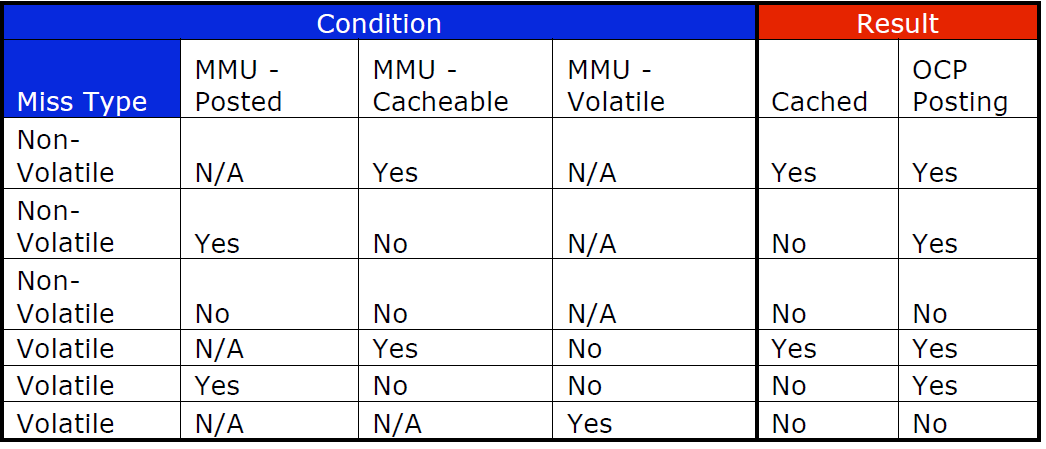Hello,
Can you please give a more detailed explanation about the fields of the IPU UNICACHE CACHE_OCP register and the AMMU pages POLICY registers
and more specifically about what is , how does in affect ,when should it be enabled
-) EXCLUSION
-)PRELOAD (when will the preload happen if enabled)
-) VOLATILE
-) L1_ALLOCATE - what are the sidebands??
-) posted / non posted - when will it be advised to use posted (no confirmation) instead of non-posted
if possible small usage example for each to illustrate the usage and reasoning will be appreciated
Thanks


